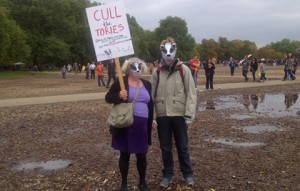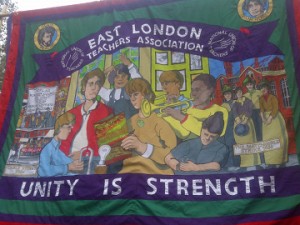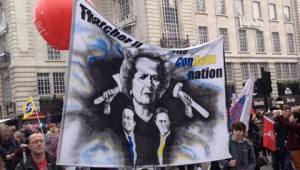
The day my girlfriend and I broke up for the fifth and final time was the day Barack Obama announced that he supported gay marriage. I let out a laugh that was more like a bark, took a Xanax, and slept on and off for the next two days. My friends brought me water and pizza, sat next to me in front of television shows I don?t remember.
The next week was akin to rising up in an airplane above a city in which you have lived for a while, and suddenly understanding the shape of it ? the curve of the coast or the sinewy motion of a river, the grid of streets. As I began to feel human, I resumed eating. In our kitchen, my roommate said to me, ?You?re coming back. You?ve gotten loud again.?
I hadn?t realized I?d been quiet for so long.
I am not normally afraid of words, but I was afraid of this one. I was so afraid of it, I lied to my friends, my teachers, my no-nonsense therapist.
Abuse. Abuse. Abuse. Even the syllables sound ugly, debased. Even my friends who knew something was wrong couldn?t say it. ?Something is not right.? ?I?m not sure what?s happening is entirely healthy.? ?I just wanted to make sure the thing I overheard is something that?s being addressed in your relationship and is not considered normal.?
The further away I got, the clearer it became. She had been my first serious girlfriend after a succession of boyfriends, and I was more in love than I had ever been before. But the relationship stretched and accommodated behavior I likely would have never taken from a man. <!?more?>
She talked down to me. She accused me of cheating, so often that I became afraid to talk too happily about hanging out with specific people, or venturing too far away from my phone, with which she would check in on me. Our fights got more frequent, more upsetting, until my roommates would wait until I was done crying, which took hours, to gently knock on my door and ask if I was all right.
She would drink and tell me she hated me, and once, in the middle of one of these episodes, tried to throw me out of her isolated house at two in the morning on a January night in Indiana, with no car and nowhere to go. That fight started because, while at a bowling alley with her friends, I?d asked her to stop groping my breasts. I locked myself in the bathroom and she hurled her body against the door, screaming. Later, she cried about how bad she felt, and I found myself comforting her.
She?d ask me which of my friends knew about our fights. The very short list always made her so angry.
Every resource about domestic abuse is in agreement: abuse can happen in any kind of relationship ? monogamous or polyamorous, lesbian, gay, or heterosexual.
But there seems to be something extra-hidden about abuse in queer relationships. Lesbians are coded as inherently egalitarian ? after all, they?re both women, right? Both oppressed by the patriarchy? How can there be abuse if there?s no man present?
Lesbian relationships are not inherently different than other relationships, but social ideas that swirl around gender poison everything, including what we ? and that means lesbians, too ? expect or think about same-sex relationships. We expect women cannot abuse other women or men can be abused by other men (and trans people are never even considered in the narrative at all), essentially erasing those experiences from the dialogue. The baggage of gender roles overloads us so much, we can?t clearly identify behavior independent of our ideas about what women, or men, or people anywhere on the gender spectrum can or cannot do.
A man sobbing about how bad he feels after acting in a disturbing way reads differently than a woman crying for the same reason, even if the act of manipulation is identical. The cultural baggage we carry is clear: men are abusers, women are the abused, and the ideas are never inverted.
I try to imagine the things that happened to me with a male partner. Would I have let a man continuously, repeatedly put me down and humiliate me, in private and in front of my friends and colleagues? Would I have let a man call me a ?fucking bitch,? rip down the shower curtain behind which I was cowering? Would I have let him threaten to throw me out into the sub-freezing night? Would, after that had passed like a summer storm, I have comforted him?
I don?t think so. But somehow, a petite blonde woman had me trapped.
So here I am, putting words to it. ?Abuse.? I was abused. I keep wanting to say ?not physically,? but some would argue that yes, it was physical, too. It was total and complete control; I became non-functional, a shadow of myself.
But I realize now: it?s hard to understand the scope of the ocean when you?re bobbing along in it. I have talked friends through abusive relationships before. I have encouraged people to break up with abusive partners, to find safety. I can recognize symptoms of domestic violence and abuse in a second, but when I was in the middle of it, it didn?t look anything like I expected. I was in love. I imagined a daughter, a domestic life. People don?t always get along, I thought. Lovers fight. It?s different because we?re both women. It?s different because we?re both writers. Both passionate.
Toward the end of our relationship, she told me a story about her teacher?s two cats.
?They?re so tightly bonded, they do everything together,? she said. ?They eat together, sleep together, and even move together. But sometimes, they tear each other apart, because they?re so close. Kind of like us.?
If it ever looks like this, I am telling you to run.
Olivia Q. is a writer living in the midwest. She arrived at the heat-death of the universe, and kept going.
Source: http://thetomboyeffect.wordpress.com/2012/10/20/repost-from-the-hairpin/
cheney heart transplant weather san diego unitarian new black panther party lost in space elizabeth banks battle royale















 Enlarge
Enlarge  www.teamgrayfitness.com
www.teamgrayfitness.com